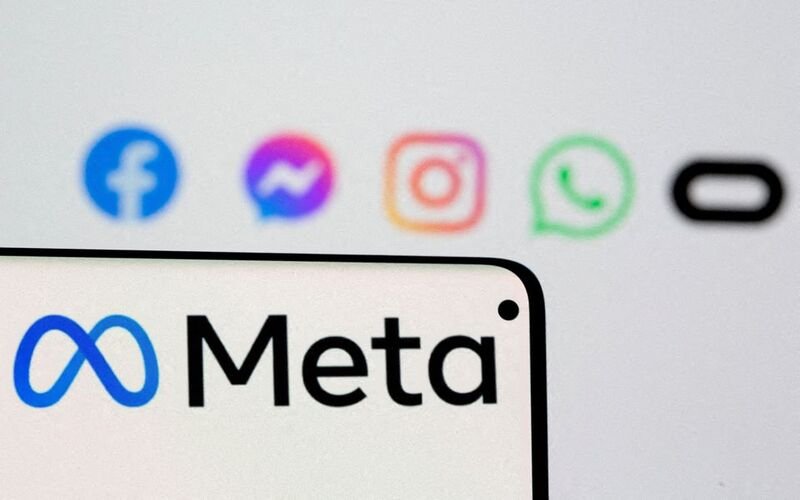Many states in the United States have filed lawsuits against Meta Platforms (META.O) and its Instagram division, claiming that the company’s addictive social media platforms are contributing to a crisis in juvenile mental health.
The attorneys general of 33 states, including California and New York, said in a complaint on Tuesday that Meta, the company that runs Facebook, purposefully misled the public about the risks associated with its platforms and encouraged young children and teenagers to use social media in an obsessive and addictive manner.
The federal court lawsuit filed in Oakland, California, states that Meta has used “powerful and unprecedented technologies to entice, engage, and ultimately ensnare youth and teens.” “Its motive is profit.”
Children have always been a desirable market segment for companies who want to win their business at a time when they may be more impressionable and foster brand loyalty.
Younger customers may help Meta attract more marketers who want to continue selling their products to youngsters as they get older.
Research, however, according to the states, links kids’ use of Meta’s social networking platforms to “depression, anxiety, insomnia, interference with education and daily life, and many other negative outcomes.”
Meta declared that the lawsuit “disappointed” it.
“Instead of working productively with companies across the industry to create clear, age-appropriate standards for the many apps teens use, the attorneys general have chosen this path,” the business stated.
On Tuesday, eight other states and the District of Columbia filed comparable cases against Meta, increasing the total number of government entities pursuing legal action against the Menlo Park, California-based corporation to forty-two.
Meta’s Nasdaq share price dropped by 0.6%.
TIKTOK AND YOUTUBE FACE LAWSUITS ALREADY
These lawsuits are the most recent in a line of legal proceedings brought by kids and teenagers against social media firms.
There are already hundreds of lawsuits against Meta, ByteDance’s TikTok, and Google’s (GOOGL.O) YouTube regarding the addictive nature of social media on behalf of kids and school districts. The CEO of Meta, Mark Zuckerberg, has previously defended his company’s treatment of information that some detractors deem detrimental.
“The fundamental premise behind these charges is that business comes above people’s security and well-being. That’s simply untrue,” he wrote on his Facebook page in October 2021.
Given that millions of young children and teens use Instagram, Meta may be subject to civil fines ranging from $1,000 to $50,000 for violating different state laws in the instances that were heard on Tuesday. This could pile up rapidly.
The business realized Instagram, which started as a photo-sharing app, was addictive and exacerbated body image issues for certain young females, according to papers released by a whistleblower in 2021, which were a major factor in the attention given to Meta.
The 33 states filed a complaint alleging that Meta has made an effort to make sure that young people use social media as often as possible, even though Meta is aware that they are vulnerable to the pressure to receive approval from other users by getting “likes” on their posts.
Attorney General Rob Bonta of California, whose state has Meta’s headquarters, said that Meta has been hurting kids and teenagers and fostering addiction to increase corporate profits.
“THREATS THAT ARE UNAVOIDABLE”
States also charged Meta with misleadingly denying that its social media was dangerous and breaking a statute that forbade the collection of data on minors less than 13 years old. “Meta did not disclose that its algorithms were designed to capitalize on young users’ dopamine responses and create an addictive cycle of engagement,” the complaint stated. One kind of neurotransmitter involved in pleasure perception is dopamine.
The lawsuit claims that last year, Meta’s unwillingness to take accountability led it to distance itself from the suicide of a 14-year-old girl in the U.K. after she came across material on Instagram discussing self-harm and suicide.
A coroner dismissed a Meta executive’s argument that this kind of video was “safe” for kids, concluding that the girl had probably binge-watched inappropriate material that made her sadness seem normal before taking her own life.
States also claimed that Meta is attempting to extend its detrimental activities into virtual reality through its Horizon Worlds platform and the applications Messenger and WhatsApp.
Authorities are suing in an attempt to close gaps created by the U.S. Congress’s failure, after years of debate, to enact additional safeguards for minors online.
According to Colorado’s Attorney General Philip Weiser, the whistleblower’s disclosures demonstrated that Meta was aware of the harm that Facebook and Instagram were causing to minors.
“It is very clear that decisions made by social media platforms, like Meta, are part of what is driving mental health harms, physical health harms, and threats that we can’t ignore,” he stated.






































Comment Template